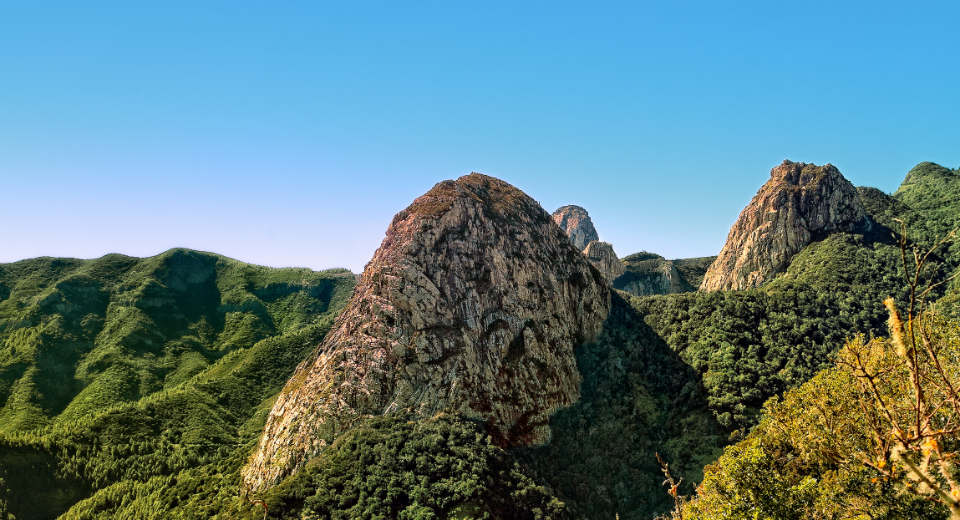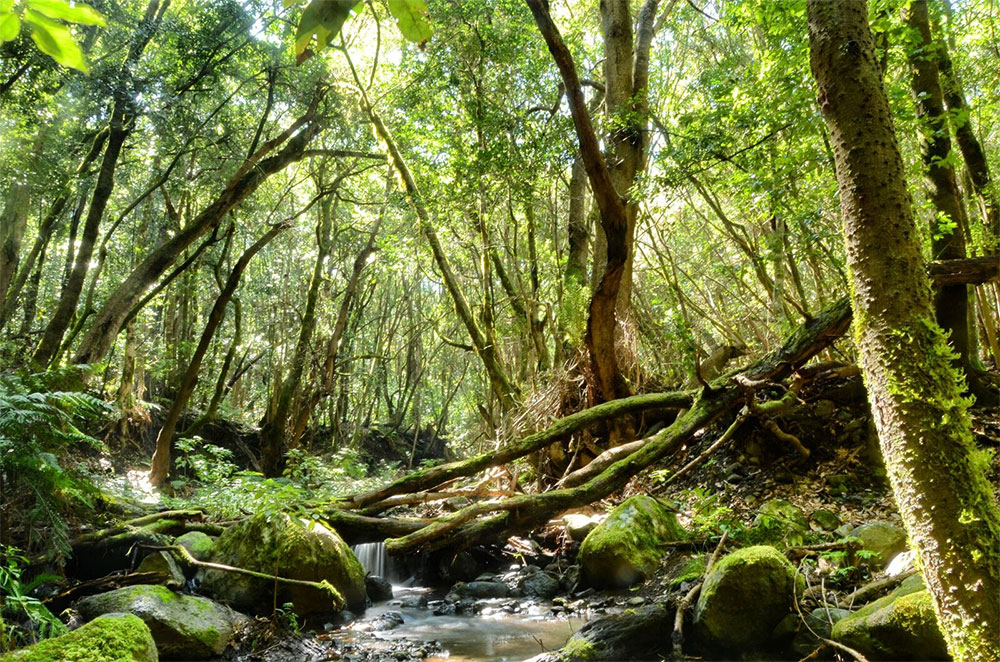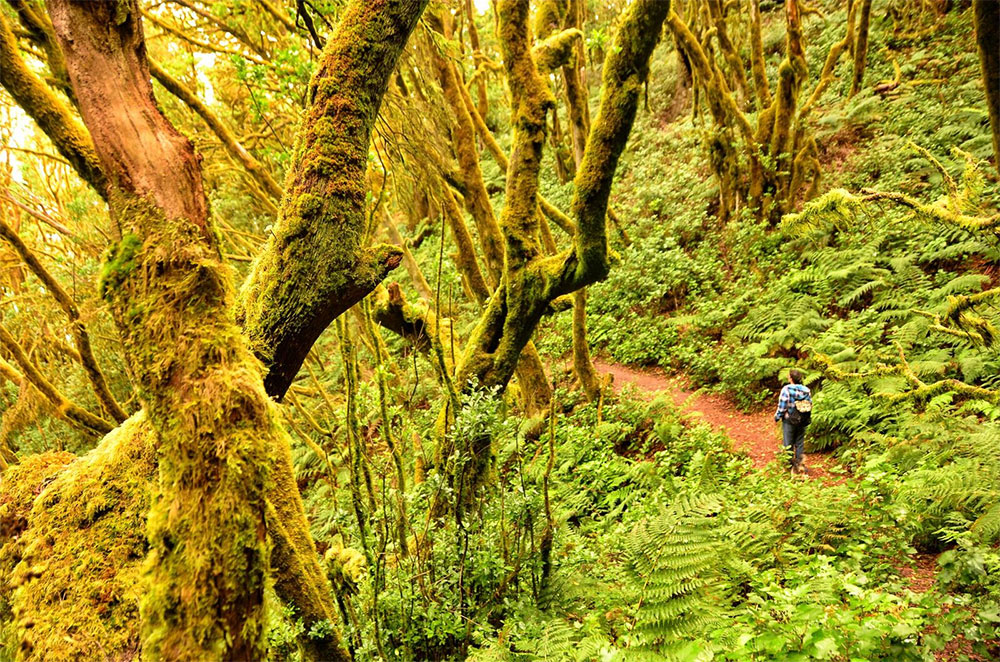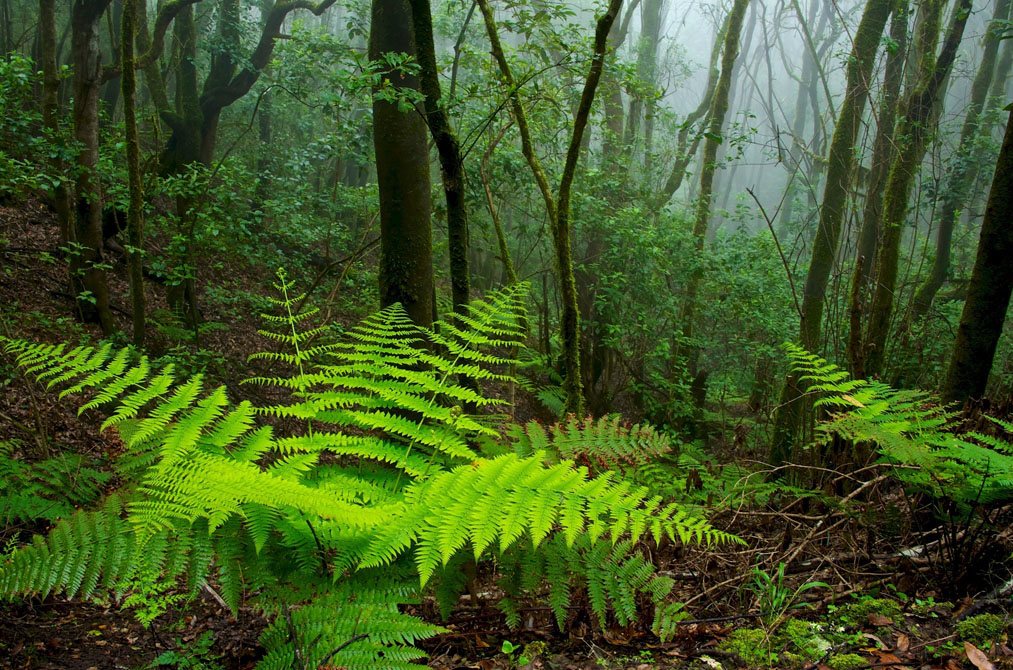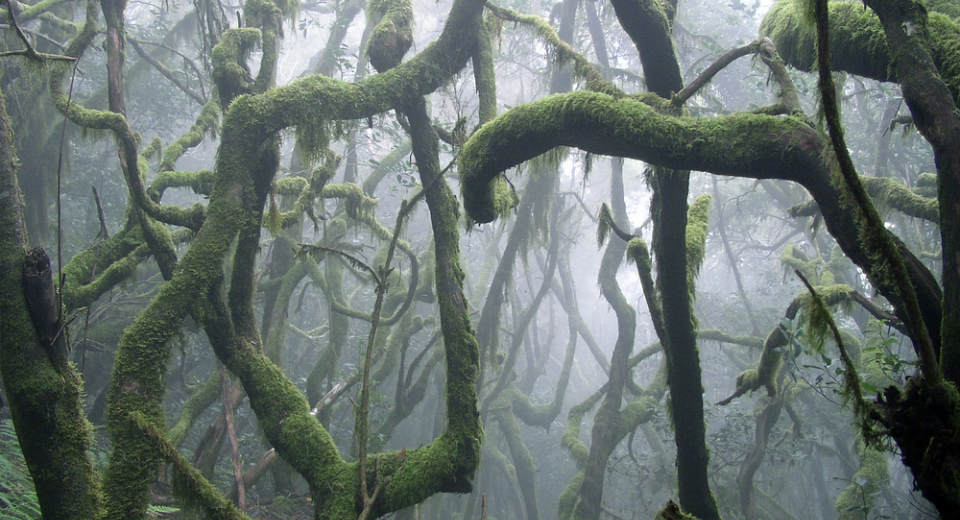LA GOMERA – FRED OLSEN
We leave from your hotel to the Port of Los Cristianos. There the ferry of the «Fred Olsen» company awaits us, which will take us to San Sebastián de La Gomera, the capital of the island.
Once in La Gomera, we will take the southern route and make a brief stop next to the Roque de Agando, a curious rock formation typical of the island. Its origin is the magma of the volcanoes that shaped the island and that, over time, has been eroding to what we can see today. Becoming a unique witness of what happened on La Gomera millions of years ago and giving us spectacular views, especially from the base of the Roque.
We will continue to the heart of the Garajonay National Park, which contains one of the most important laurel forests in the Canary Islands and, therefore, in the world. It was declared a World Heritage Site by UNESCO in 1986. We will take a relaxing walk enjoying the forests of the National Park, witnessing the contrast between the evergreen and lush forest and the arid landscapes surrounding the island. A true relic of the past that preserves part of the flora that inhabited the Mediterranean lands during the Cenozoic Era (formerly known as the Tertiary Era) and that disappeared from continental Europe due to climatic changes that hardly affected the islands due to their remote geographical location . A unique experience where you will feel a powerful connection with the majesty and tranquility of the wild nature.
Through these impressive virgin landscapes, we will arrive at Las Rosas Restaurant, a cozy place, where you can taste the exquisite gastronomy of Gomera with the best service in a family atmosphere, unique and typical of the island. (Lunch included in the price).
After lunch, we can discover and appreciate the secrets of the Silbo Gomero language. A whistled language of the island which reproduces with whistles the language spoken by the islanders: Spanish. Transmitted from masters to disciples over centuries, it is the only whistled language in the world fully developed and practiced by a large community of over 22,000 people. • Passing through towns such as Hermigua, a beautiful agricultural valley, mostly dedicated to banana cultivation and wine production, where we can appreciate some of the most picturesque hamlets on the entire island of La Gomera.
We will continue our route through Agulo, a beautiful northern municipality open to the Atlantic Ocean, with the peak of El Teide always present in its landscapes. This Municipality is the smallest on the island of La Gomera, it is nestled at the foot of a large basalt wall and forms a beautiful green “balcony” over the sea. This town is considered as “The bombon of La Gomera” thanks to its indisputable attractiveness and its careful appearance. Agulo is full of pleasant cobbled streets and beautiful tile houses with self-consumption orchards around them. We will return to the island’s capital, San Sebastián, a city full of culture and tradition. Its old town has more than five hundred years of history. The trace of the passage of Christopher Columbus to the discovery of the “New World” and the conquest of the island by the kingdom of Castile, makes San Sebastián a unique and special place in the Canary Islands and in the history of civilization. As traces of its history, the Torre del Conde stands out, a fortress of medieval origin and the oldest preserved construction in the Islands; the church of Our Lady of the Assumption, where we can delight in the result of the mixture between the Gothic and Canarian styles, a true museum of sacred art; the hermitage of San Sebastián, built around 1530 or the so-called Casa de la Aguada, with its well, from which legend has it that Christopher Columbus drank the water with which the new continent was baptized. San Sebastián de La Gomera keeps in its hermitage of Puntallana the patron saint of the island, the Virgin of Guadalupe, who every five years goes out in procession to all the municipalities of La Gomera, attracting thousands of faithful and curious to their festivals. San Sebastián is an exceptional place that has very good samples of its past. Dotted with beautiful constructions of traditional Canarian architecture, with architectural examples that will reveal the great religious, social, political and military activity that have been the protagonists of this settlement of more than five centuries old.
Finally, we will go to the pier, which is currently one of those with the highest density of passenger traffic nationwide, since it communicates daily with the islands of Tenerife, La Palma and El Hierro. Here we will take again the boat of the company “Fred Olsen” in the direction of the port of Los Cristianos. Perhaps during the journey, with a little luck, we will be able to meet the pilot whales or the dolphins that live in the waters that bathe La Gomera.

